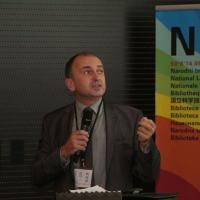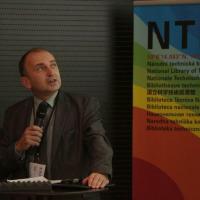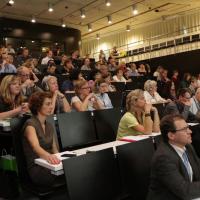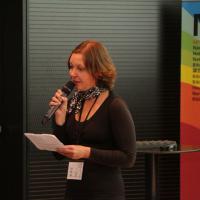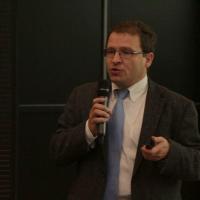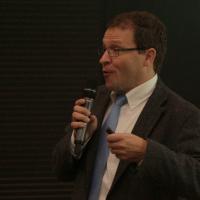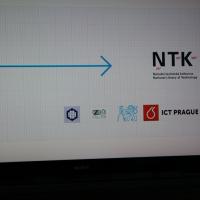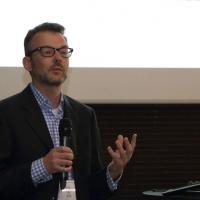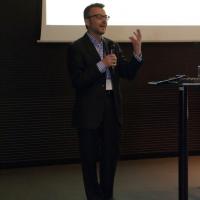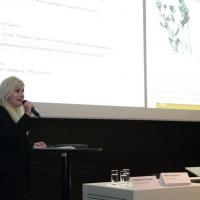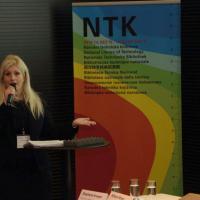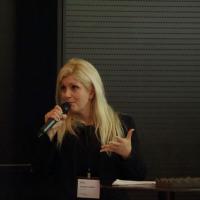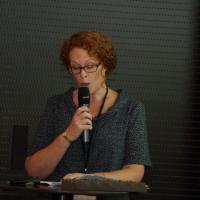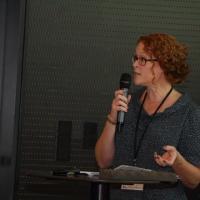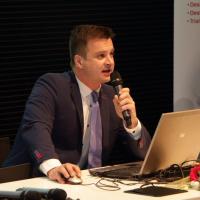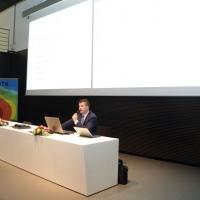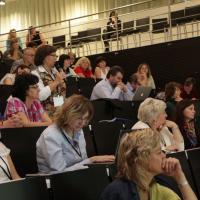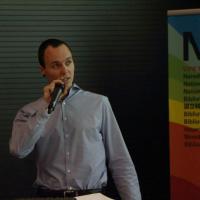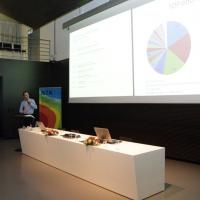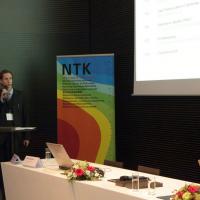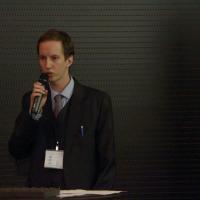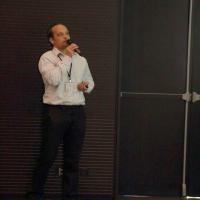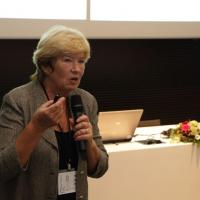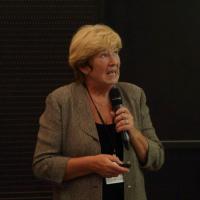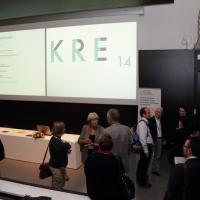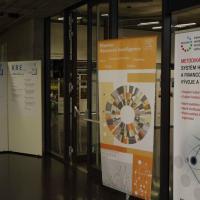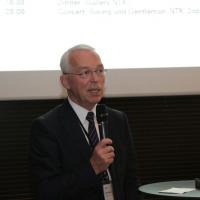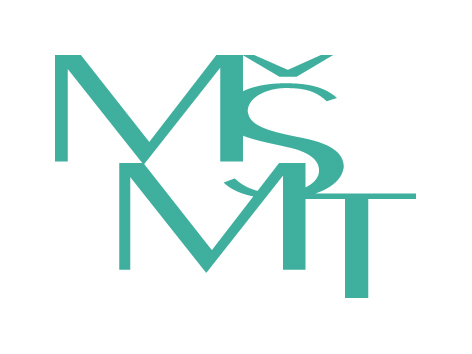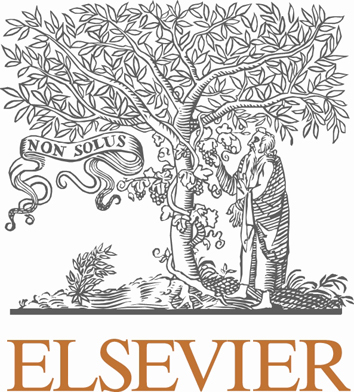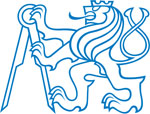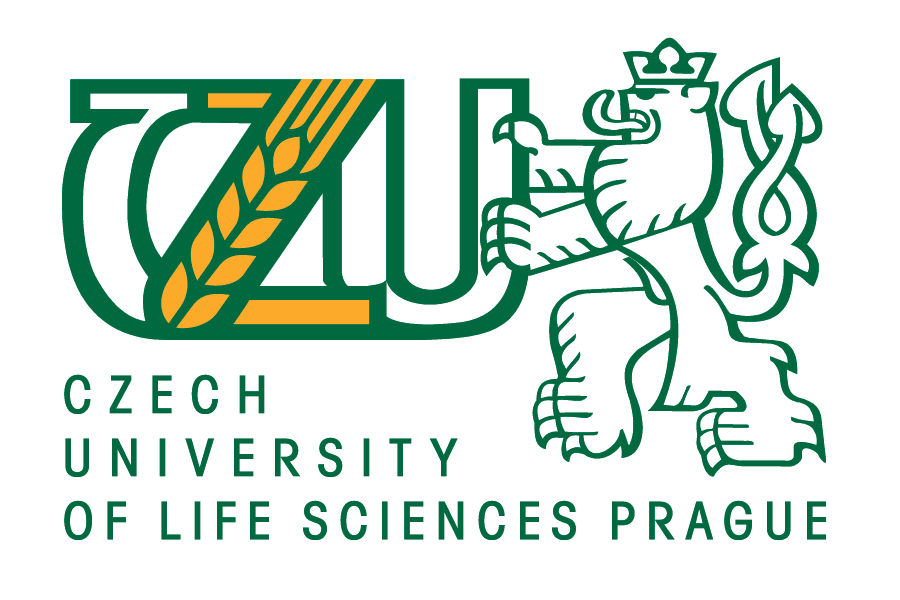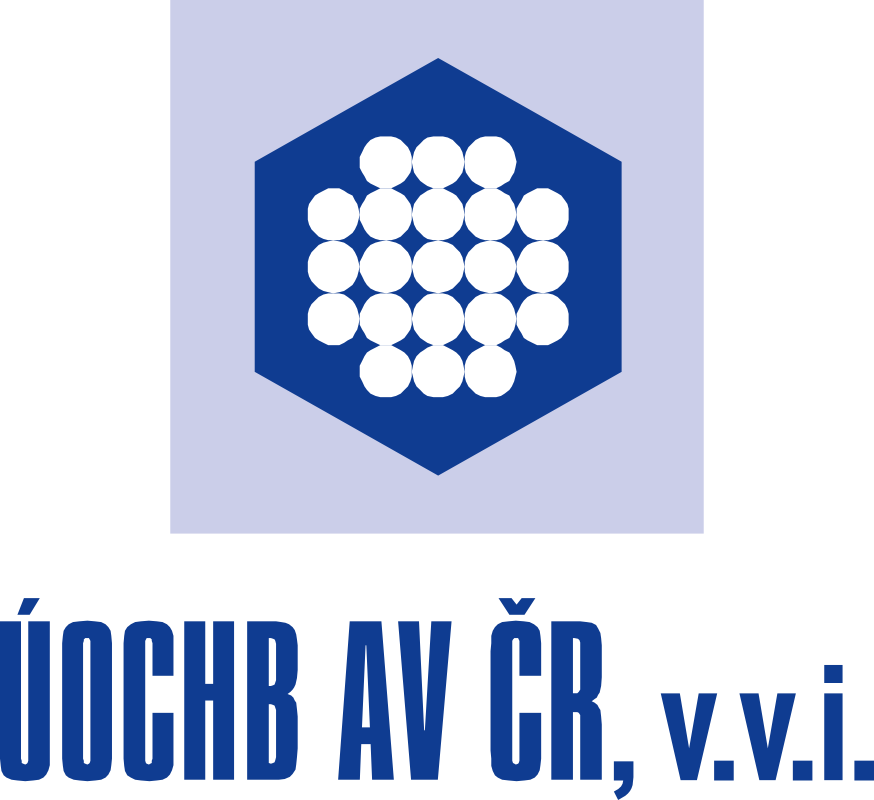KRE 14
Strategic Management of Research and the Role of Bibliometrics
9. – 10. October 2014
This year's conference is dedicated to publishing statistics - how they impact authors and researchers and provide insight to research centers as part of the Czech Ministry of Education's effective project evaluation and support for funding of research, development and innovation project (IPN Methodology project). Two keynote lectures on the topic of strategic management research will be followed by research reports on the use of citation data for local bibliometric purposes and presentations by producers of citation data and of bibliometric tools. Final discussion will be devoted to the effective use of these tools on a national scale. As in past years, the conference will additionally provide a platform for professional debate and networking during breaks and at the gala dinner.
The conference is organized in association with ChemTK (Institute for Chemical Technology, Prague).
KRE 14 is made possible by the Czech Ministry of Education, Youth, and Sports, notably Prof. Ing. Jaromír Veber, MD. (Deputy Minister for Research and Higher Education ) and Prof. Ing. Jitka Moravcová, PhD. (Principal Researcher for the IPN Methodology Project).
Program
Thursday 9th
11:00 – 13:00 Lunch buffet, registration
11:00 – 22:00 Cloakroom
13:00 – 14:50 Part 1 - Background
13:00 Opening: Martin Svoboda (NTK), CZE
13:20 Strategic Management of Research at a National Level / Franci Demšar (ARRS), SVN
14:05 The use of bibliometric indicators in the management of research institutions / Daniel Münich (CERGE EI), CZE
15:15 – 17:45 Part 2 – Tools
15:15 National Licences for Metrics / Martin Svoboda (NTK), CZE15:45 Thomson Reuters – InCites: Bibliometrics at the University of Glasgow / William Nixon (University of Glasgow), GBR
The Use of Thomson Reuters Research Analytic Resources in Academic Performance Evaluation / Evangelia A.E.C. Lipitakis (Thomson Reuters), GBR
16:45 Elsevier – SciVal Using SciVal at the University of Bath / Kate Robinson (University of Bath), GBR New research perspective – SciVal for the Czech Republic / Krzysztof Szymanski (Elsevier), NLD
18:30 Dinner (Gallery NTK)
20:00 Concert (NTK, 2nd floor)
Friday 10th
8:30 – 14:00 Cloakroom
09:00 – 10:30 Part 3 – Seminars
9:00 Elsevier SciVal: Practical Aspects and Effective Use / Krzysztof Szymanski (Elsevier), NLD9:45 Thomson Reuters InCites: Practical Aspects and Effective Use / Evangelia A.E.C. Lipitakis (Thomson Reuters), GBR
10:30 - 10:50 Coffee Break
10:50 – 13:30 Part 4 – Use Cases and Possibilities
10:50 Case Study: Library of the Academy of Sciences of the Czech Republic / Pavel Mika (KNAV), CZE11:20 Bibliometrics at the Czech National Library of Technology: Methods, Experiences, Mission and Vision / Jakub Szarzec (NTK), CZE
11:50 Bibliometrie: přínosy, úskalí /Jiří Jirát (Institute of Chemical Technology Prague), CZE
12:20 The Role of Indicators for Institutional Assessment and Financing / Jitka Moravcová (The Ministry of Education, Youth and Sports), CZE
12:50 Closing discussion
Lectures and speakers
Keynote 1
Franci Demšar: Strategic Management of Research at a National Level
Franci Demšar has obtained his Ph.D. from physics in University of Ljubljana in 1987 and has published more than hundred articles in the field of magnetic resonance imaging which are cited in scientific community. In 1997 he accepted the position of state secretary for science and technology in Slovenia and has served in Slovenian government at various positions since then. He is currently the director of Slovenian Research Agency, which is the main funding institution in Slovenia. Management of R&D is not only a professional post but also a subject of scientific interest, which has resulted in a book in Slovenian language and several other scientific contributions.
Keynote 2
Daniel Münich: The use of bibliometric indicators in the management of research institutions
abstract:
Quality control at any institution requires quality information. This also applies to research institutions, but compiling reliable information about the quality of scientific results is not a simple task. Bibliometrics can serve as a good servant, but a bad master. We must always ask ourselves what do we actually evaluate, for what purpose, and what these bibliometric indicators actually are telling us—and what not—and what we have to be particularly careful about. Managing of a department or small team of scientists is different than managing a school or institute, a college or major scientific infrastructure. This discussion will be supplemented with specific examples, both good and bad. At the same time, it will highlight what is important to know about bibliometrics and what other assessment tools are available to institutions.
Daniel Münich is a Docent (Associate Professor) at CERGE, Charles University, since 2006, and a Researcher at the Economics Institute of the Academy of Sciences of the Czech Republic (EI) since 1998. CERGE-EI is a joint workplace of Charles University in Prague and the Economics Institute of the Academy of Sciences of the Czech Republic. Received his Ing. degree in Electrical Engineering in 1991 from the Czech Technical University in Prague, a Ph.D. in Economics in 1998 from CERGE, Charles University. His research interests include institutional evaluation and research funding.
Martin Svoboda: National Licences for Metrics
abstract:
Tools for measuring and evaluating institutional scholarship and its impact can provide leading institutes and universities with valuable information. Evaluation of relationships using cluster analysis, finding trends and - in particular - the comparison with peer institutions, either domestically or internationally, provide the opportunity to unveil in due time strengths and weaknesses of individual universities, institutes, or even departments. This assumes the "purity" of data - i.e., the unambiguous identification of persons and institutions who require additional attention. Even evaluation itself is not trivial and requires a trained team with proper data analysis, and, if possible, also statistical expertise. All of the above might be done more conveniently and efficiently by establishing a joint specialized service center than by repeating these activities at every single university or institute separately. This contribution advocates a joint solution.
Martin Svoboda graduated from the Czech Technical University in electrical engineering, specializing in computer technology. From 1988-1997, he was a systems programmer, Director of Automation and Department Head. He has been Director of the Czech National Library of Technology (formerly State Technical Library) since 1997. He is an active member of many Czech and international professional organizations including SKIP, ELAG, LIBER, and others. His interests include topics affecting libraries such as copyright and consortial purchase of electronic resources.
William Nixon: Bibliometrics at the University of Glasgow
presentation (pdf, EN) William Nixon is Head of Digital Library Services at the University of Glasgow. Digital Library Services is responsible for the Library web service, desktop support, the Library Management System (Sierra) and the ongoing development of Enlighten, Glasgow's institutional repository service. William has worked with citation data and InCites since it was first introduced at the University of Glasgow over the last four years. In the last year he has worked with colleagues at Thomson Reuters in the creation of a Glasgow authors dataset - using publication data from Enlighten. He has also led on the use of Enlighten for the selection of outputs for the UK's national Research Excellence Framework (REF2014) and used InCites to provide additional citation data. He is interested in the additional data and visualisations which the new version of InCites will offer and exploring how these can be best used by the University. William is the co-chair of the Programme Committee for Open Repositories and a member of the SPARC Europe board.
Evangelia A.E.C. Lipitakis: The Use of Thomson Reuters Research Analytic Resources in Academic Performance Evaluation
Evangelia A.E.C. Lipitakis is a research analytics consultant for European, Middle Eastern and African (EMEA) higher educational institutions, research institutions and research assessment funding bodies (governmental/private) for the Scientific & Scholarly Research (SSR) division of Thomson Reuters. Evangelia holds a Ph.D. in Bibliometrics and a Master’s degree in Management Science and specializes in the area of academic research performance evaluation and quantitative methodologies for measuring research performance. Before joining Thomson Reuters, Evangelia was conducting research in the area of Scientometrics and lecturing at the University of Kent, England.
Kate Robinson: Using SciVal at the University of Bath
abstract:
This presentation will consider the context within which the University of Bath uses SciVal. It will outline the UK research assessment landscape and consider the current and potential use of bibliometrics, giving some practical examples.
Kate Robinson is University Librarian at the University of Bath, where she is a member of the University’s Executive and other key committees which shape and lead the University’s strategy and vision. Originally a Theology graduate from the University of Manchester and with a Masters in Library & Information Studies, she has worked in libraries since the 1980s; contributing to a range of sectors within the profession including public libraries, private members’ libraries and the advertising industry. Kate’s professional interests are user focussed and she particularly enjoys collaborative projects which experiment with new ideas and new technologies.
Kate is a member of the Executive Board of the Society of College, National and University Libraries (SCONUL) which represents all university and national libraries in the UK and Ireland, and many of the UK’s colleges of higher education. She is Vice Chair of the Chartered Institute of Library & Information Professionals’ (CILIP) Professional Registration and Accreditation Board, a Magistrate and a Fellow of both the Royal Society of Arts and CILIP.
Krzysztof Szymanski, New research perspective – SciVal for the Czech Republic
abstract:
Elsevier offers Czech researchers community to apply a new perspective on their research output. New approach offers wider recognition of daily work among Czech scientists and puts forward their impact in their specific disciplines. Only now the impact of their work will be truly reflected within the Czech Republic as well as in the world.
For the analysis of the Czech science Elsevier will also employ Snowball Metrics, which is owned by research-intensive universities around the globe, to ensure that its outputs are of practical use to them, and are not imposed by organizations with potentially distinct aims such as funders, agencies, or suppliers of research information. For the purpose of this analysis we will use the biggest citation database of the current research in the world – Scopus, which is also the database that covers the highest number of high quality journals in the Czech Republic. The analysis will also look into using RIV database records in SciVal analysis.
Krzysztof Szymanski works at Elsevier as a Research Management Consultant and holds direct responsibility for the development of research analytics in Central and Eastern Europe. In his role he supports university managements, funding bodies and governments. Before joining Elsevier he also worked at Thomson Reuters Scientific.
Pavel Mika: Case Study: Library of the Academy of Sciences of the Czech Republic
abstract:
The presentation will cover several areas regarding bibliometrics activities at the Library of the Academy of Sciences of the Czech Republic, including possibilities for the library in providing bibliometric services and information resources available via its specific bibliographic database ASEP, including its analytical components, according to several internal analyses. In addition, the lecture will describe the library's experiences with the IPN evaluation methodology project regarding the Academy of Sciences, including proposed bibliometric methods as well as possibilities and limitations for use.
Pavel Mika has worked at the Library of the Academy of Sciences of the Czech Republic since the beginning of 2014, focusing on bibliometrics and scientometrics. He graduated from the Department of Information and Library Studies at Charles University, where he graduated in 2013. He is actively involved in the IPN Methodology project as an expert for Key Activity 1 - information support.
Jakub Szarzec: Bibliometrics at the Czech National Library of Technology: Methods, Experiences, Mission and Vision
abstract:
In the Czech Republic, the assessment of science and research is an ongoing and frequently discussed topic. This presentation will focus on the Czech National Library of Technology’s (NTK’s) experiences in the field of bibliometrics. After introducing basic terminology, Szarzec will briefly discuss aspects of citation analysis and other analytic methods. Bibliometrics, for example, does not only examine citation data in terms of numeric values, but it also focuses on their interrelations. The presentation will call attention to practical experiences and ongoing projects as well as NTK’s planned future role and vision in this area.
Jakub Szarzec is a graduate in Information and Library Studies, Silesian University in Opava. Since 2011 he has worked in the reference and professional services department at NTK focusing on citation analysis, bibliometrics, scientometrics and answering inquiries from patrons in these areas. He also actively participates in the project "Effective evaluation and funding of research, development and innovation" (IPN Methodology) as an expert in Key Activity 1.
Jiří Jirát: Bibliometrics: benefits, pitfalls
abstract:
This presentation briefly summarizes the most commonly-selected bibliometric indicators and metrics, comparing them in relation to their complexity and limitations. Several examples will demonstrate the need for multi-criteria evaluation as well as the risks of the out-of-the-box bibliometric approach, which might result in misleading or one-sided interpretations.
Jiří Jirát: Born 1974; graduate in Chemical Engineering; now a member of the Laboratory for Informatics and Chemistry and the Center for Information Services at the Institute of Chemical Technology in Prague with an emphasis in Chemical Informatics.
Jitka Moravcová: IPN Methodology
abstract:
The IPN Methodology project’s objective is to design and verify research institutions’ evaluating systems by means of an informed peer-review according to the field evaluation methodologies, which would replace the current methodology of result evaluation of research institutions by more effective and more international field quality standard oriented evaluating. The second objective is to design an evaluating method of the system as a whole, and financing mechanisms of the whole system in such manner that the public funding contributes to R&D&I’s improvement in excellence, motivates all participants, and in consequence supports the competitiveness of the Czech Republic. The third objective is to improve the general quality of evaluation in the R&D&I area, and to create a professional background for future regular and systematic evaluating. This presentation provides an update on the current status of the project.
Jitka Moravcová studied at the Faculty of Organic Chemistry at the Institute of Chemical Technology (ICT) in Pardubice. From 2000 until 2005, she worked as a chief of the Institute of Chemical Technology in Prague. Later, between 2005 - 2007, she held the post of science and research vice-rector at the ICT in Prague. From 2010 until 2011 she served as an educational vice-dean at the Faculty of Food and Biochemical Technology of the ICT in Prague. Currently, Professor Moravcová lectures at the Department of Chemistry of Natural Compounds, and she's a member of several scientific and expert committees. Thanks to her role in the IPN Methodology, Professor Moravcová is a main vocational guarantor of already second Individual National Project. In the past, she acted as a main vocational guarantor in the IPN International Audit of Research, Development and Innovation in the Czech Republic and in the implementation of the results into strategic documents (Audit R&D&I).
Registration
You will receive confirmation of your registration via email after completing the registration form.
If there is any problem with registration, please contact us at: kre@techlib.cz.
* mandatory fields
Useful information
Participants are asked to make their own travel arrangements.Transport from the airport
From the airport, you can reach the National Library of Technology by bus or taxi.By bus:
Bus 119 departs from Vaclav Havel airport approximately every 5-20 minutes between 5 a.m. to 0:30 p.m. from Terminal 1 and stops near the entrance to subway line A's Dejvická station. The ride takes approximately 25 minutes and costs 24 CZK. You can also use the special bus AE linka (Airport Express) that stops at the same place (40 CZK).By taxi:
We recommend you to take a taxi with an official licence (AAA or 111 taxi). Taxis take about 10 minutes to arrive to Dejvice and cost around 300 CZK.
More information: http://www.dpp.cz/en/public-transit-to-ruzyne-airport/
Transport from the central station and the bus station
From the central railway station and the bus station Florenc, use the red subway line C towards Háje and transfer at Muzeum to green line A in the direction of the end station Dejvická. From there, follow the signs to the library/Czech Technical University campus.
Transport to the city center
Getting downtown from the conference is easy and convenient - using subway line A, it's just three stops to Staroměstská and five stops to Muzeum.
There are three kinds of tickets: the all-day ticket (110 CZK) is valid for 24 hours. Single trip tickets are available for 75 minutes (32 CZK) or 30 minutes (24 CZK) - be sure to validate your ticket when you enter the subway. The tickets are valid for the entire public transportation network including subway, bus, tram - and even the cable car to Petřín hill. They can be purchased in the self-service machines, at some underground stations, tobacconist shops and some newspaper kiosks.
More information: http://www.dpp.cz/en/
Accommodation
Participants are asked to make their own hotel arrangements. Some hotels near the conference venue:
Hotel DAP (Dům Armády Praha)
Address: Vítězné náměstí 684/4, 160 00 Praha 6 - Dejvice
Tel. + 420 973 211 444, + 420 973 211 422
http://www.daphotel.cz
Hotel Denisa
Adresa: Národní obrany 33, 160 00 Praha 6 - Dejvice
Tel. + 420 224 318 969
http://www.hotel-denisa.cz
Diplomat Hotel Praha
Address: Evropská 15, 160 41 Praha 6 - Dejvice
Tel. + 420 296 559 212, + 420 296 559 178, + 420 296 559 213
http://www.diplomathotel.cz/cz/home
Hotel International Prague
Address: Koulova 15, 160 45 Praha 6 - Dejvice
Tel. + 420 296 537 111
http://www.internationalprague.com
Masarykova kolej (hostel)
Address: Thákurova 1, Praha 6 - Dejvice
Tel. + 420 233 051 111
http://www.studenthostel.cz/
Other useful information
The Conference Hall has 196 seats in the auditorium and 50 seats in the balcony. All the seats in the auditorium (except the first row) offer power and data sockets.
Wifi for KRE 14 participants:
SSID: NTK-KRE14
password: KRE14-NTK



